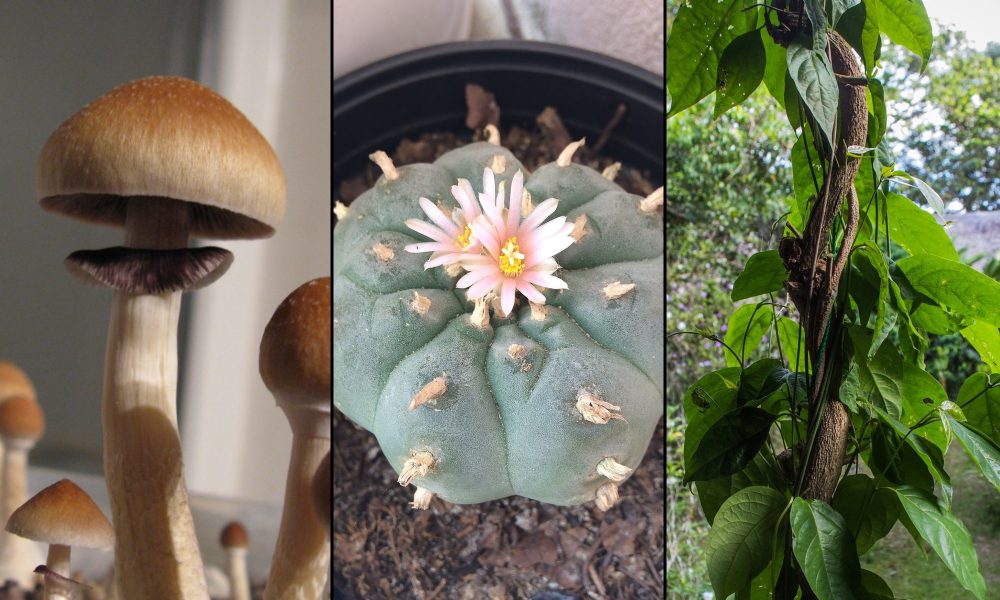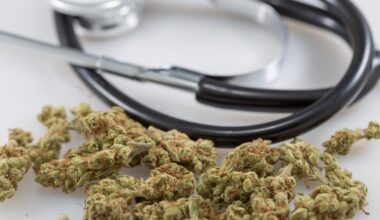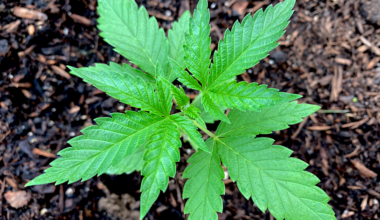Michigan activists announced on Wednesday that they will no longer be pursuing a statewide psychedelics legalization ballot initiative for this year’s election and will instead focus on qualifying the measure to go before voters in 2024.
The coalition of organizations behind the ballot push—including Decriminalize Nature, its Michigan chapter and Students for Sensible Drug Policy (SSDP)—didn’t have much time to work with after they were approved for signature gathering in March, with a deadline to turn in enough valid petitions by June 1. And now they’ve accepted that the activist-led push for reform will need to be recalibrated.
“It’s time to refocus our energy,” Myc Williams, campaign manager of the Michigan Initiative for Community Healing, said in a press release. “We knew a June 1st deadline make the 2022 ballot was ambitious with just over two months to collect, and now we know we have the momentum necessary to move forward with a normal 180[-day] collection period. We’ll see ya at the polls in 2024.”
In an email, Williams declined to say how many signatures the activists have been able to collect so far, but he told Marijuana Moment that he can “confirm that current signatures are still valid for 2024 as long as we turn in during this election cycle.”
Activists needed to turn in 340,047 valid signatures from registered voters by June 1 to qualify for this November’s ballot. Now they will have until September 15 to meet that threshold to put the measure on the ballot in 2024.
The Michigan Initiative for Community Healing would authorize the “supervision, guidance, therapeutic, harm reduction, spiritual, counseling, and related supportive services with or without remuneration,” according to the text of the measure.
There’s also a sales component, with the measure authorizing entities “designated by a hospital or psychiatric hospital” that has received a “certificate of need” from the state Department of Health and Human Services to cultivate and sell the psychedelics to people whose doctors have issued a written recommendation for it.
Beside legalizing psychedelics, the measure proposes to amend state drug statutes, significantly reducing criminal penalties for possessing any other controlled substances classified under Schedule I or Schedule II of state law.
It would also remove testing equipment used to determine the potency and purity of drugs from the definition of paraphernalia and protect people from being prosecuted for “minuscule, residual or unusable” amounts of drugs found on paraphernalia.
At the local level in Michigan, the East Lansing City Council last week narrowly rejected a resolution to effectively decriminalize psychedelics in the jurisdiction, with the mayor and city attorney voicing concerns about possible legal ramifications of the reform proposal.
These latest setbacks notwithstanding, Michigan has become something of a hub for advancing the issue at the local level.
In March, the Hazel Park City Council unanimously approved a resolution to decriminalize psychedelics like psilocybin and ibogaine.
Detroit voters approved a ballot initiative to widely decriminalize psychedelics in November.
The Ann Arbor City Council previously elected to make enforcement of laws prohibition psychedelics like psilocybin, ayahuasca and DMT among the city’s lowest priorities—and lawmakers then followed up by declaring September Entheogenic Plants and Fungi Awareness Month.
After local legislators passed that decriminalization resolution in 2020, the Washtenaw County prosecutor announced that his office will not be pursuing charges over possessing entheogenic plants and fungi, “regardless of the amount at issue.”
Last year, the Grand Rapids City Council approved a resolution supporting the decriminalization of a wide range of psychedelics. However, the measure fell short of what activists had hoped, in that it doesn’t actually change any city enforcement practices and merely expresses support for future reforms.
A pair of state senators also introduced a bill in September to legalize the possession, cultivation and delivery of an array of plant- and fungi-derived psychedelics like psilocybin and mescaline.
—
Marijuana Moment is already tracking more than 1,000 cannabis, psychedelics and drug policy bills in state legislatures and Congress this year. Patreon supporters pledging at least $25/month get access to our interactive maps, charts and hearing calendar so they don’t miss any developments.![]()
Learn more about our marijuana bill tracker and become a supporter on Patreon to get access.
—
Outside of Michigan, psychedelics reform is being pursued in state legislature and at the ballot in states across the country.
For instance, Colorado activists are also working to place competing initiatives to legalize psychedelics on the state’s November ballot, with one campaign saying recently that it’s already collected nearly half of the required signatures needed to qualify its measure.
Colorado Gov. Jared Polis (D) was recently asked about the prospects of enacting psychedelics reform in the state, and he acknowledged that advocates are working to accomplish that policy change at the ballot and also said he supports the idea of decriminalizing the substances.
He will also have a chance to sign a more modest psychedelics reform bill into law after the legislature sent him a measure to align state statute to legalize MDMA prescriptions if and when the federal government ultimately permits such use.
The governor of Connecticut recently signed a large-scale budget bill that includes provisions to set the state up to provide certain patients with access to psychedelic-assisted treatment using substances like MDMA and psilocybin.
The governor of Maryland announced late last week that he will allow a bill to create a state fund to provide “cost-free” access to psychedelics like psilocybin, MDMA and ketamine for military veterans suffering from post-traumatic stress disorder (PTSD) and traumatic brain injury to take effect without his signature.
The Maine Senate approved a bill in April to to create a medical psilocybin program in the state, but the House of Representatives refused to go along.
Also that month, Georgia lawmakers advanced a bipartisan resolution that calls for the formation of a House study committee to investigate the therapeutic potential of psychedelics like psilocybin and make recommendations for reforms.
The governor of Utah signed a bill in March to create a task force to study and make recommendations on the therapeutic potential of psychedelic drugs and possible regulations for their lawful use.
A Missouri House committee also held a hearing that month on a GOP-led bill to legalize a wide range of psychedelics for therapeutic use at designated care facilities while further decriminalizing low-level possession in general.
The Washington State legislature recently sent a budget bill to the governor’s desk that includes a proposal to direct $200,000 in funding to support a new workgroup to study the possibility of legalizing psilocybin services in the state, including the idea of using current marijuana regulatory systems to track psychedelic mushrooms.
In March, the Hawaii Senate approved a bill to set up a state working group to study the therapeutic benefits of psilocybin mushrooms and develop a “long-term” plan to ensure that the psychedelic is accessible for medical use for adults 21 and older.
Also that month, the Oklahoma House of Representatives passed a bill to decriminalize low-level possession of psilocybin and promote research into the therapeutic potential of the psychedelic.
Rhode Island lawmakers introduced a pair of drug decriminalization bills in March—including one focused on psilocybin and buprenorphine that would authorize doctors to prescribe the psychedelic mushroom.
An Oregon Senate committee also recently advanced a bill to ensure that equity is built into the state’s historic therapeutic psilocybin program that’s actively being implemented following voter approval in 2020.
A bill to decriminalize a wide array of psychedelics in Virginia was taken up by a House of Delegates panel in January, only to be pushed off until 2023. A separate Senate proposal to decriminalize psilocybin alone was later defeated in a key committee.
California Sen. Scott Wiener (D) told Marijuana Moment in a recent interview that his bill to legalize psychedelics possession stands a 50/50 chance of reaching the governor’s desk this year. It already cleared the full Senate and two Assembly committees during the first half of the two-year session.
Washington State lawmakers also introduced legislation in January that would legalize what the bill calls “supported psilocybin experiences” by adults 21 and older.
Meanwhile, a Pennsylvania bill meant to promote research into the therapeutic potential of psilocybin mushrooms for certain mental health conditions may be in jeopardy, with the sponsor saying that the chair of a key House committee is expressing reservations even after the legislation was amended in an effort to build support.
New Hampshire lawmakers filed measures to decriminalize psilocybin and all drugs.
Legislation was also enacted by the Texas legislature last year requiring the state to study the medical risks and benefits of psilocybin, MDMA and ketamine for military veterans in partnership with Baylor College of Medicine and a military-focused medical center.
At the congressional level, bipartisan lawmakers sent a letter to DEA in January, urging that the agency allow terminally ill patients to use psilocybin as an investigational treatment without the fear of federal prosecution.
Activists and patients were arrested at the DEA headquarters last month after engaging in civil disobedience during a protest over the agency’s refusal to provide a waiver granting those patients access to psilocybin under Right to Try laws.
Photo elements courtesy of carlosemmaskype and Apollo.
Medical Disclaimer:
The information provided in these blog posts is intended for general informational and educational purposes only. It is not a substitute for professional medical advice, diagnosis, or treatment. Always seek the advice of your physician or other qualified healthcare provider with any questions you may have regarding a medical condition. The use of any information provided in these blog posts is solely at your own risk. The authors and the website do not recommend or endorse any specific products, treatments, or procedures mentioned. Reliance on any information in these blog posts is solely at your own discretion.






